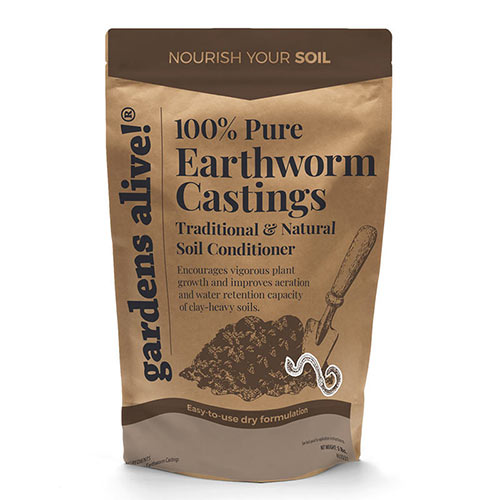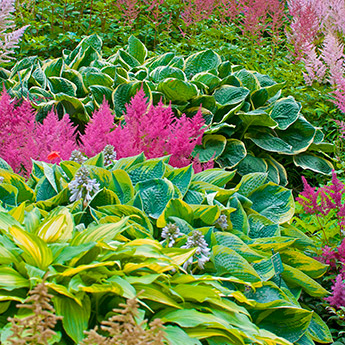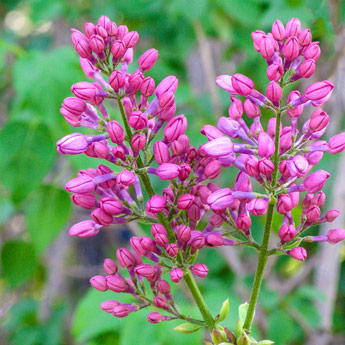What Should we Do about Worms from Out of Town?
-
Helpful Products from Gardens Alive!
-
 100% Pure Earthworm Castings - Natural Soil Conditioner
100% Pure Earthworm Castings - Natural Soil Conditioner
Q. Dan in Dayton writes: "I recently saw an article on invasive worms. I've always loved having earthworms in my dirt, but have I been making the problem worse? Also, I have no idea what native worms look like. Can they be bought? Are they as good? The article is titled "Nonnative earthworms are all over North America, and it's a problem".
A. At first, I thought Dan was referring to a study that's been floating around for quite a few years, but this is a new version, published just this year in the journal Nature Ecology and Evolution.
I quote from the article's abstract: "70 alien earthworm species have colonized the North American continent. They have larger geographical ranges than native species and novel ecological functions, representing a serious threat to the biodiversity and functioning of native ecosystems. (note my emphasis of 'native ecosystems' here; they're not talking about farms and gardens.)
They continue: "Earthworms, and probably other soil organisms, constitute a major but overlooked pool of invasive species that are not adequately managed by existing control and mitigation strategies."
Mitigation?! As I have said about previous studies looking at this issue: "How the devil are you going to control earthworms without massive destruction of the environment you're trying to save?"
The authors estimate that 'alien' earthworms are prevalent in roughly 73% of North America. Only 3% of native species dominate North America, while 28% of the areas studied are {quote} "devoid of native species".
Oddly enough, they note that 'alien' worms are twice as prevalent in Canada as opposed to the US. In general, they add, alien species seem to greatly prefer cooler Northern climates.
"Overall, aliens represent 23% of the 308 worm species in North America." But, the researchers add, those aliens cover such a large area that they account for 12 of 13 most widespread species."
The authors note that these non-native earthworms arrived mostly from Europe and Asia. The big difference between them and natives is that the natives live underground and process and reprocess soil. The non-natives prefer working in leaf litter and duff (the top inches of material on the forest floor. As a result, these non-natives make soil richer, but also make natural forest mulches disappear faster.
The researchers describe what this means to us in very clear language: Non-native earthworms are beneficial to farmers and gardeners by enriching the soil faster than natives. "They are possibly detrimental in wild natural areas, where they change the ecology of the forest floor."
In conclusion, they note that we can do nothing to eliminate the existing population of non-native worms, but that we can slow it down by using good practices that have been recommended for decades, like not disposing of left-over fishing worms into the environment. Maybe fisher-people should keep a little indoor bait garden? Then you wouldn't have to pay for new worms!
Another thing that seemed to be strongly suggested was to not add worm bin worms ('Red Wrigglers') to your garden.
Otherwise, they point out that climate change may slow their spread, as they definitely prefer areas with cooler weather, which, as we know, is getting scarcer. But basically, we have to accept that our environment is in a constant state of change and always has been. A lot of what was 'native' a century ago is long gone, and that pace will only increase.
Q. We move on! Leslie near Downingtown, PA. writes: "I heard about Asian jumping worms last fall and then found some in my raised bed garden in October!!! I took out as many as I could find (it was a lot) and put them in a bucket with vinegar. Some of the soil now looks like coffee grounds--as I was told it would. Now I'm concerned about this year's garden. I'm told that I could get rid of them by solarizing the soil over 100 degrees. Any other ideas?"
Soil solarization is not as easy as you imply. You would not be able to use that bed for a full season--and it would only work if the summer were more sunny than usual. And when you remove the clear plastic that you used to try and cook the soil, the jumpers would quickly return.
As one of Star Trek's most popular alien species--the Borg--have famously said, "resistance is futile". I hate to be direct, but you're wasting your time trying to achieve an endless task. And as the researchers note, these non-native worms are beneficial in managed horticulture, like farms and gardens.
I'm somewhat puzzled by these scare stories making their way into newspaper articles, which seem to be written by people who clearly haven't read the actual studies. When I was back working at Rodale Press, our publisher, the late great Robert Rodale, would always tell us not to present a problem unless you can present a solution, which in this case, like much of gardening, is 'just leave it alone'.
A. At first, I thought Dan was referring to a study that's been floating around for quite a few years, but this is a new version, published just this year in the journal Nature Ecology and Evolution.
I quote from the article's abstract: "70 alien earthworm species have colonized the North American continent. They have larger geographical ranges than native species and novel ecological functions, representing a serious threat to the biodiversity and functioning of native ecosystems. (note my emphasis of 'native ecosystems' here; they're not talking about farms and gardens.)
They continue: "Earthworms, and probably other soil organisms, constitute a major but overlooked pool of invasive species that are not adequately managed by existing control and mitigation strategies."
Mitigation?! As I have said about previous studies looking at this issue: "How the devil are you going to control earthworms without massive destruction of the environment you're trying to save?"
The authors estimate that 'alien' earthworms are prevalent in roughly 73% of North America. Only 3% of native species dominate North America, while 28% of the areas studied are {quote} "devoid of native species".
Oddly enough, they note that 'alien' worms are twice as prevalent in Canada as opposed to the US. In general, they add, alien species seem to greatly prefer cooler Northern climates.
"Overall, aliens represent 23% of the 308 worm species in North America." But, the researchers add, those aliens cover such a large area that they account for 12 of 13 most widespread species."
The authors note that these non-native earthworms arrived mostly from Europe and Asia. The big difference between them and natives is that the natives live underground and process and reprocess soil. The non-natives prefer working in leaf litter and duff (the top inches of material on the forest floor. As a result, these non-natives make soil richer, but also make natural forest mulches disappear faster.
The researchers describe what this means to us in very clear language: Non-native earthworms are beneficial to farmers and gardeners by enriching the soil faster than natives. "They are possibly detrimental in wild natural areas, where they change the ecology of the forest floor."
In conclusion, they note that we can do nothing to eliminate the existing population of non-native worms, but that we can slow it down by using good practices that have been recommended for decades, like not disposing of left-over fishing worms into the environment. Maybe fisher-people should keep a little indoor bait garden? Then you wouldn't have to pay for new worms!
Another thing that seemed to be strongly suggested was to not add worm bin worms ('Red Wrigglers') to your garden.
Otherwise, they point out that climate change may slow their spread, as they definitely prefer areas with cooler weather, which, as we know, is getting scarcer. But basically, we have to accept that our environment is in a constant state of change and always has been. A lot of what was 'native' a century ago is long gone, and that pace will only increase.
Q. We move on! Leslie near Downingtown, PA. writes: "I heard about Asian jumping worms last fall and then found some in my raised bed garden in October!!! I took out as many as I could find (it was a lot) and put them in a bucket with vinegar. Some of the soil now looks like coffee grounds--as I was told it would. Now I'm concerned about this year's garden. I'm told that I could get rid of them by solarizing the soil over 100 degrees. Any other ideas?"
Soil solarization is not as easy as you imply. You would not be able to use that bed for a full season--and it would only work if the summer were more sunny than usual. And when you remove the clear plastic that you used to try and cook the soil, the jumpers would quickly return.
As one of Star Trek's most popular alien species--the Borg--have famously said, "resistance is futile". I hate to be direct, but you're wasting your time trying to achieve an endless task. And as the researchers note, these non-native worms are beneficial in managed horticulture, like farms and gardens.
I'm somewhat puzzled by these scare stories making their way into newspaper articles, which seem to be written by people who clearly haven't read the actual studies. When I was back working at Rodale Press, our publisher, the late great Robert Rodale, would always tell us not to present a problem unless you can present a solution, which in this case, like much of gardening, is 'just leave it alone'.
-
Helpful Products from Gardens Alive!
-
 100% Pure Earthworm Castings - Natural Soil Conditioner
100% Pure Earthworm Castings - Natural Soil Conditioner







 Gardens Alive! & Supplies
Gardens Alive! & Supplies




